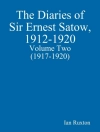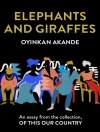In her incisive work, ‚The Point of View, ‚ Elinor Glyn navigates the intricate dynamics of love, desire, and societal expectations through a series of vignettes that challenge traditional narrative norms. Glyn’s prose is characterized by its vivid imagery and psychological depth, emboldened by her keen observations of early 20th-century mores. The narrative uniquely intertwines personal reflections with broader cultural critiques, making Glyn a pivotal voice of her era, daringly exploring themes of gender roles and romantic entanglements within the context of Edwardian sensibilities. Elinor Glyn, an influential author and screenwriter, was instrumental in bringing female sexuality into mainstream literature. Drawing from her affluent upbringing and experiences in both London and Hollywood, Glyn fiercely advocated for women’s autonomy. Her exposure to the shifting tides of social custom and her fascination with the complexities of human relationships informed ‚The Point of View, ‚ positioning her as a groundbreaking figure in early feminist literature. ‚The Point of View‘ is a provocative exploration of love filtered through a modern lens, making it essential reading for those interested in feminist theory, literary history, and the evolution of romantic discourse. Glyn’s work not only entertains but also urges readers to reconsider their own perspectives on love and desire.
Über den Autor
Elinor Glyn, born on October 17, 1864, in Jersey, Channel Islands, was a British novelist and scriptwriter who gained notoriety for her romantic fiction that flouted early 20th-century literary conventions. Glyn’s writing was often characterized by its bold exploration of female sexuality and the dynamics of desire, marking her as a pioneer in the genre of ‚romantic erotica.‘ Her influential position in popular culture was not just limited to her literature but extended to her work in Hollywood, which helped shape the early film industry.
Her novel ‚The Point of View‘ further solidifies her characteristic literary style of examining human relationships through a sharp and often controversial lens. Described as an incisive social commentator, Glyn’s works frequently delved into the intricacies of high society, unveiling the complexities of the human heart. Glyn’s oeuvre includes bestsellers such as ‚Three Weeks‘ and ‚It, ‚ the latter contributing a new term to the lexicon of 1920s youth. Glyn passed away on September 23, 1943, leaving behind a legacy that influenced both literary and cinematic narratives through her assertive and sensual storytelling. She remains a subject of study for those interested in the progression of early feminist fiction and the evolution of romantic literary forms.












